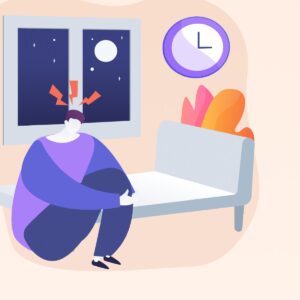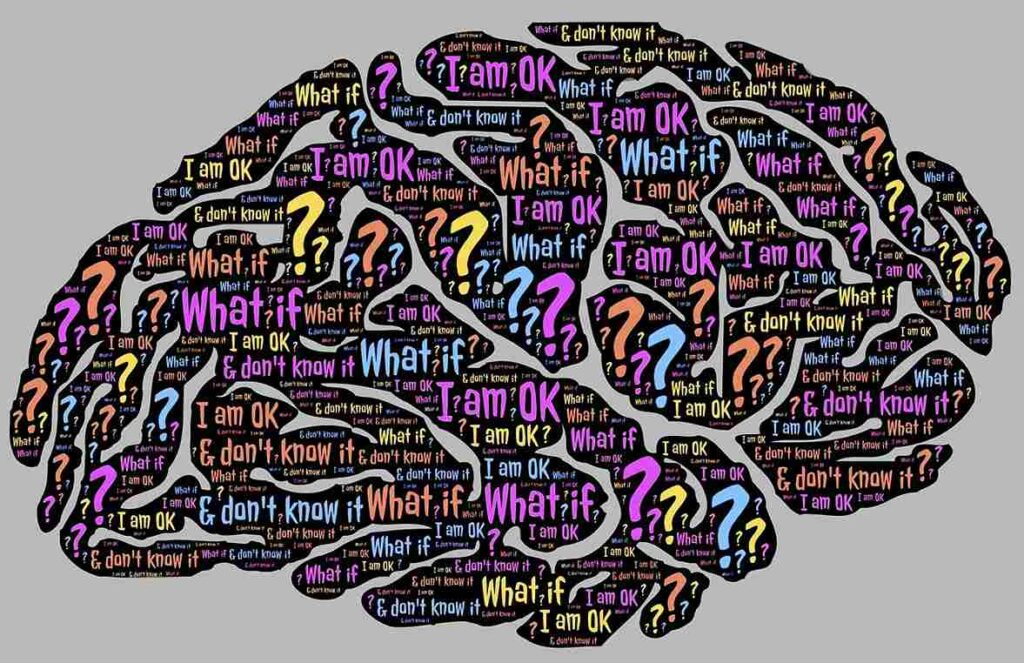Compulsive behavior is a problem that many people struggle with. But what is it exactly? What causes it? And how can you get help? In this blog post, we will answer all of those questions and more. We will discuss what compulsive behavior is, the different types, and what causes it. We will also talk about treatment options and how to get help for yourself or a loved one.
Contents
What Is Compulsive Behavior?
Compulsive behavior is an excessive, repetitive, and uncontrollable behavior that you feel compelled to do. It can range from mild behaviors to severe ones, but all have the same effect. They interfere with your daily life routine and the surrounding also. For example, someone might feel compelled to check the locks on their door multiple times throughout the day even though nothing has changed since the last check.
What Triggers Compulsive Behavior?

The exact cause of compulsive behavior is not completely understood, but there are some factors that can increase the likelihood of developing it. For example, people who have experienced trauma or a stressful life event may be more likely to develop compulsive and obsessive behaviors. Additionally, genetics and biology may play a role in triggering such behaviors. Some causes that lead to this condition are Anxiety, Depression, Stress, Trauma, and Obsessive-Compulsive Disorder (OCD).
What Are The Different Types Of Compulsive Behavior?

There are many different types of compulsive behaviors, ranging from mild to severe. We have mentioned the most common of them:
OCD (Obsessive Compulsive Disorder)
OCD is an anxiety disorder that involves intrusive thoughts or fears of potential danger. This condition leads to the urge to carry out certain rituals or behaviors. It includes repetitive behavior which could be anything from handwashing and counting to checking locks or organizing items. The over-indulgence in such activities can take up a lot of time and interfere with other activities.
Body-Focused Repetitive Behavior
Body-focused repetitive behaviors are a form of compulsive behavior where the person engages in self-harm activities. These include picking at skin, pulling out hair, or biting nails and cuticles. This type of behavior is related to stress and can be difficult to stop once it has become a habit. Rhinotillexomania is another type of BFRB in which the person has an uncontrollable urge to pick their nose. In Trichotemnomania, the person pulls out their own hair, often from the head, eyebrows, or eyelashes.
Hoarding
Hoarding is the excessive accumulation of items, even when those items are no longer useful or needed. Hoarding can lead to cluttered living spaces, which in turn can create health and safety risks. People who hoard may also have difficulty getting rid of their possessions, despite the fact that they don’t need them. This can bother a person and the people around them, as well as lead to financial difficulty and strain on relationships.
Gambling
Gambling is a form of compulsive behavior that involves betting or wagering on the outcome of an event. It can range from low-stakes activities like buying lottery tickets to high-stakes games like poker and casino gambling. People who compulsively gamble often feel as though they need to win in order to be satisfied, and they may become overwhelmed by the amount of money they’ve lost or invested in their habit.
Eating
Eating too much and eating unhealthy foods can be a form of compulsive behavior. Eating compulsively is often triggered by stress, depression, or boredom. People who struggle with binge eating may find themselves consuming large amounts of food in a short period of time which can lead to significant weight gain. People prefer to eat alone, and afterward, they may feel guilty or ashamed of their behavior.
Internet And Gaming
People who compulsively use the internet or play video games often have difficulty controlling their usage. Internet addiction can manifest itself in many different forms and is characterized by an inability to stop using the internet even though it has caused significant disruptions to daily life. People may also find themselves spending excessive amounts of time playing video games instead of engaging with other people or activities.
Shopping
Shopping is an addiction to shopping which often manifests as an uncontrollable urge to buy items even if they aren’t needed. People with this disorder may also find themselves buying items in excess, or spending more money than they can afford. Other symptoms of shopping include guilt and shame, difficulty controlling the impulse to buy, and feeling an intense rush of pleasure when shopping.
Exercise
Exercise can also be a form of compulsive behavior, particularly if it is carried out to an excessive degree. People who compulsively exercise may feel the need to exercise for hours each day in order to feel satisfied. This could be dangerous and lead to injuries or illnesses due to overtraining or exhaustion. It’s important for people who compulsively exercise to take breaks and recognize when they may be pushing themselves too hard.
Compulsive behavior can cause a person to become isolated and lead to poor physical, mental, and emotional health. It’s important for people to seek professional help if they think they are engaging in compulsive behavior in order to manage the underlying issues.
Compulsive Sexual Behavior
Compulsive sexual behavior, also known as hypersexuality or sex addiction, is an excessive preoccupation with sexual thoughts and activities. People may find themselves engaging in risky and unsafe behaviors such as unprotected sex, promiscuity, or visiting strip clubs or massage parlors. Compulsive sexual behavior can have a significant impact on relationships and can lead to financial and legal difficulties.
Overall, compulsive behavior can range from mild to severe cases, and the severity of the disorder can depend on many different factors. It is important for those experiencing this condition to seek help in order to reduce the risk of developing serious health issues or further damaging relationships. Professional counseling and support groups are both effective ways to treat compulsive behavior. Additionally, medication and lifestyle modifications can be helpful in treating the underlying causes of it.
What Are The Compulsive Behavior Treatments?

Here are some of the treatments and therapy that are effective in controlling the effect of compulsive behavior:
Therapy
Check out some of the varieties of therapy that can reduce the effect of this severe condition:
- CBT: The Cognitive behavior therapy is used to identify unhealthy patterns of thinking and behaviors and replace them with healthier ones. It is useful to hold on the anxiety and depression and build self-control.
- ERP: Exposure Response Prevention Therapy works by exposing a person to their compulsive behavior and preventing them from engaging in the behavior. This helps people learn how to resist their urges and manage their behaviors more effectively.
- ACT: Acceptance and Commitment Therapy is an approach that focuses on helping people accept their thoughts and feelings without judging or trying to control them. It helps people cope with their compulsive behaviors in a more mindful way.
- Mindful activities: Regularly practicing mindful activities, such as writing a journal, listening to music, or meditating can help reduce stress and anxiety.
Medication
Some medications can help reduce the symptoms of compulsive behavior, such as antidepressants or antipsychotics. However, it is important for people to speak with their doctor about any potential risks associated with these medications before taking them.
It is also important for people to seek professional help if they feel overwhelmed by their compulsions.
Support Groups
Support groups can be a great resource for people who are struggling with compulsive behaviors. They provide a space to openly talk about the challenges they are facing, learn from other’s experiences, and develop coping skills and strategies.
It is important for those suffering from this condition to remember that recovery is possible and that there are many resources.
Exercises
Physical activity can be a great way to reduce stress and help manage symptoms of compulsive behavior. Regular exercise can also improve mental health by increasing endorphin production. This chemical is known to have a positive effect on mood. Furthermore, it’s important for people who engage in compulsive behavior to take breaks and recognize when they may be engaging in activities that are unhealthy or risky.
It is also important to remember that recovery is a process, and it can take time and effort to break free from compulsive behavior. But with the right resources, support, and understanding, it is possible to overcome this disorder and find relief.
Conclusion
This was all about the aspect of compulsive behavior. It includes the causes, various types, and available treatments. All of these factors make it possible for us to better understand this disorder in order to be able to provide proper support and care. The most important thing to remember is that recovery is possible and with the right resources it can be achieved. With that in mind, never hesitate to reach out for help if you are struggling! Open up and just deal with the problem.
Take care, and don’t forget that you are not alone! OCD is a mental health disorder characterized by obsessions and compulsions. If you have any queries regarding OCD treatment, ERP therapy experienced therapists at OCDMantra can help: Book a trial OCD therapy session.


